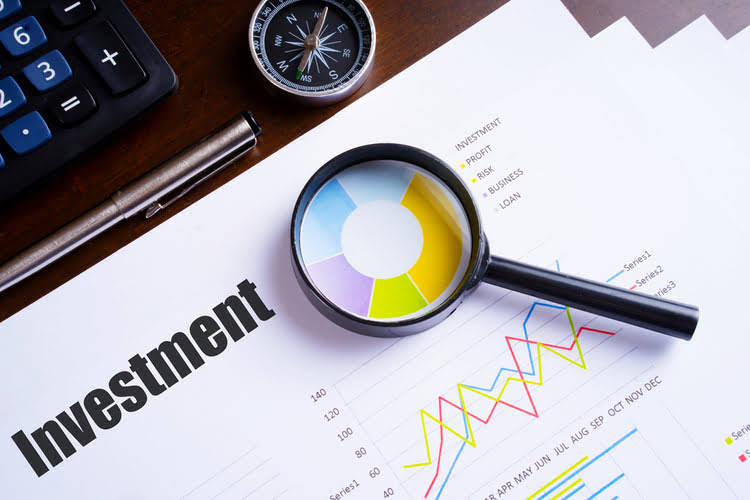Content
- What’s the Difference Between Accountants and Bookkeepers?
- Stop RunningYour BusinessLike This!
- When you should hire a bookkeeper
- What Is Bookkeeping? A Small-Business Owner’s Guide
- What Is the Pay Rate for a Certified Bookkeeper?
- How is the Accounting Process Different from Bookkeeping?
- More Efficient Services

Smaller businesses may employ “full-charge bookkeepers” who also categorize the data they enter and sometimes prepare financial statements. Larger businesses often call their bookkeepers “accounting clerks;” these may be specialized by the types of data they enter – for example, accounts receivable or accounts payable.
To become one, you have to either have worked at the IRS or pass an EA examination. There are various career paths for accountants , from working as a forensic accountant to becoming a financial auditor or an enrolled agent. Accountants, though not formally required to do so, traditionally acquire their CPA certification and a master’s degree. Learn how to choose an accountant who has the skills your business…
What’s the Difference Between Accountants and Bookkeepers?
Working in the cloud helps protect the most critical financial data your company holds, mitigates disastrous cybersecurity events, and ultimately, protects your business’s reputation. No matter which position you choose—your accounting and bookkeeping team must work from the cloud. A knowledgeable and skilled bookkeeper with years of experience is—most likely—more qualified to run the books for your business than a recent accounting major graduate. Industries that work with complex financial systems and high-volume transactions require accountants (i.e., government agencies, colleges, hospitals, etc.). Why your accounting and bookkeeping team need accounting cloud solutions and cloud bookkeeping.
Do bookkeepers need to be licensed?
To be a bookkeeper you need to have a money laundering license, also known as AML – Anti Money Laundering. If you don't have this you would be breaking the law if you start a bookkeeping business from home. License holders are offered a range of resources and guidance to help complying with your AML duties.
Intuit does not endorse or approve these products and services, or the opinions of these corporations or organizations or individuals. Intuit accepts no responsibility for the accuracy, legality, or content on these sites. Most importantly, your accountant is a valued advisor who can help you with important decision-making. If you’re considering purchasing new equipment or taking out a line of credit, for example, your accountant can help you determine the financial ramifications of your decision. Most people would be hard-pressed to describe the difference between an accountant and a bookkeeper.
Stop RunningYour BusinessLike This!
Cost AccountingCost accounting is a defined stream of managerial accounting used for ascertaining the overall cost of production. It measures, records and analyzes both fixed and variable costs for this purpose. They further assist the management in understanding the financial impact of its past and future decisions. Banking services are provided by Middlesex Federal Savings, F.A.; Member FDIC. While having an adequate bookkeeping system in place may be sufficient for many small businesses, it does not diminish the importance of an accountant.
What is the difference between accounting and bookkeeping?
Bookkeeping focuses on recording and organizing financial data. Accounting is the interpretation and presentation of that data to business owners and investors.
Your bookkeeper will compare the balances in your books against bank and credit card statements to see if they match. If not, they make adjustments and create bank reconciliation statements to record these discrepancies. Although payroll is not a core bookkeeping function, some bookkeepers process payroll and assist with payroll tax returns.
Are responsible for entering the data into the books and keeping the records up to date. It involves tracking all income and expenses, paying bills, invoicing, tracking payroll, etc.
When you should hire a bookkeeper
A bookkeeper is also limited by licensing which a Certified Public Accountant has for the issuing of audited statements. Companies need these commissioned documents to fulfill regulations for permits and licenses or when dealing with other financial institutions such as banks. However, these certifications are optional; people don’t need one to be a professional bookkeeper.
As well as audit, review, and prepare a financial statement like a balance sheet or an income statement. The primary goal of accounting is to provide key financial information to business owners, managers, and investors so they can make informed, strategic business decisions for the future. A bookkeeper keeps records of a company’s daily financial transactions such as sales, payroll, payment of bills, etc, and classifies them. They focus more on accurate record-keeping with less focus on analytics. When the accounting tasks for your small business are too much to handle by yourself, it’s time to hire help. The terms are sometimes used interchangeably, and there can be some overlap in what they do, but there are some distinct differences. The hiring of an individual to conduct these activities could have conflicting views.

Investopedia requires writers to use primary sources to support their work. These include white papers, government data, original reporting, and interviews with industry experts. We also reference original research from other reputable publishers where appropriate. You can learn more about the standards we follow in producing accurate, unbiased content in oureditorial policy. Bookkeeping is a great starting point if you are interested in the field but not fully committed and want to test the waters. You may also be an ideal bookkeeping candidate if you want a good job with a respectable wage and decent security but may not be looking for a long-term career. Bookkeeping offers much lower barriers to entry, and the competition you face in the job search is less fierce.
What Is Bookkeeping? A Small-Business Owner’s Guide
They can create a budget specific to your company from financial reports. Bookkeepers record transactions – The bookkeeping process covers recording important transactions. On hisAccounting Coach website, Harold Averkamp explains that, “The accountant…takes over where the bookkeeper leaves off. Bookkeeping is the process of maintaining the records of the business and making sure that all requirements are fulfilled. On the other hand, auditing involves doing analytical and backtesting on the records to establish authenticity. To interpret the financial statements in a way that can be useful for business decision making by the owners and other stakeholders. In light of the above discussion, it can be established that there is a usual overlapping between the roles of a bookkeeper and an accountant.

Once the first leg of the race is finished, they hand the baton—the financial information contained in ledgers and journals—to accountants to complete the race. Small businesses need to be clear on the difference between bookkeeping and accounting. Here are five differences between what bookkeepers and accountants do. An accountant might consult with a bookkeeper to clarify financial accounting vs bookkeeping records or gain additional insight into daily expenses. Work Of The AccountantsAn accountant is a finance professional responsible for recording business transactions on behalf of a firm, reporting the firm’s performance and issuing financial statements. Thus, an accountant plays an important role whether it is a small domestic entity or a large multinational company.
What Is the Pay Rate for a Certified Bookkeeper?
” The concise answer is that bookkeeping involves the recording of data and financial information while accounting involves analyzing, classifying and interpreting this data. Because of accounting’s analytical and complex nature, accountants require more formal education and training than bookkeepers.
- To communicate necessary accounting information to the internal as well as the external users.
- Accounting is usually performed by a certified professional accountant.
- For instance, bookkeepers will need to look at a business checking account to ensure they’ve recorded all bank deposits within a specific time period.
- As a small business owner, you need accuracy and up-to-date in your financial data so you can make good business decisions and ensure you have a healthy cash flow.
- This work is usually done with a suite of specialized software.
Supervise bookkeepers’ work to ensure that they accurately record and categorize transactions. Accountants are like financial doctors—they look at symptoms and prescribe something so businesses can improve their financial health. Responsibility AccountingResponsibility accounting is a system of accounting where specific persons are made responsible for the accounting of particular areas and cost control. In this type of accounting system, responsibility is assigned based on a person’s knowledge and skills. PayrollPayroll refers to the overall compensation payable by any organization to its employees on a certain date for a specific period of services they have provided in the entity. This total net pay comprises salary, wages, bonus, commission, deduction, perquisites, and other benefits.
They are tasked with generating financial reports from bookkeeper records. This is a big part of accounting services for small businesses. Financial accounting involves the preparation of financial statements — such as balance sheets, income statements and cash flow statements — for internal and external stakeholders. Managerial accounting involves similar functions, but the information is intended primarily to help internal stakeholders make informed business decisions. Cost accounting uses this same data to inform decisions related to the cost of producing specific products or services, right down to how they should be priced at the consumer level. The differences between accounting and bookkeeping are in the way either works with financial data.
While the bookkeeper should be careful to make sure all data is entered correctly, the accountant confirms this by balancing the books and drafting the financial statements. Controllers manage all of the accounting functions, from budget creation and adherence to the timely and accurate drafting of financial statements. Bookkeepers are responsible for maintaining all of the financial records for the company. Bookkeeping, accounting, and finance management are all critical to the financial success of your business. “Accountancy” also is often used as an umbrella term to encapsulate several areas of real-world financial statement management, including preparation, compilation and review.
It’s important to note that bookkeeping is a foundational aspect of accounting—without the bookkeeping process, the accounting process wouldn’t be possible. This is because the accountant uses the information gathered by the bookkeeper to prepare the larger financial statements and reports. Bench gives you a dedicated bookkeeper supported by a team of knowledgeable small business experts. We’re here to take the guesswork out of running your own business—for good. Your bookkeeping team imports bank statements, categorizes transactions, and prepares financial statements every month.
Principle of Utmost Good Faith — Everyone involved in the accounting process is acting with honesty. Principle of Materiality — The value of all assets are set at cost, and all financial reports are based on the truth. Although accounting and accountancy are often used interchangeably, each term has its own unique definition and practical uses. If your business https://www.bookstime.com/ is new, you may only get a bookkeeper at the end of the year. You can go from having a bookkeeper on a quarterly basis to having someone come in monthly until you eventually hire someone full time. You may need both a bookkeeper and an accountant, or you may need one or the other. If you’re just starting out, they can be an especially valuable resource.
- Bookkeeping is the process of recording daily transactions in a consistent way, and is a key component to gathering the financial information needed to run a successful business.
- An accountant can also be a bookkeeper, but an entry-level bookkeeper is not an accountant.
- Founded in 1804, Ohio University is the ninth oldest public university in the United States.
- FreshBooks is unique accounting software aimed at helping small businesses simplify their accounting and bookkeeping services for efficient running of their operations in a secure, fast and easy way.
- You might have to withhold child support or retirement plan contributions, calculate payroll taxes in multiple states, and file several payroll tax returns and W-2s.
In this guide, we’ll explain the functional differences between accounting and bookkeeping, as well as the differences between the roles of bookkeepers and accountants. Staying on top of your finances is a key part of being a successful small business owner. Your financial data must be current and accurate so you have the tools you need to make sound business decisions and implement healthy cash flow strategies. Those seeking to expand their employment opportunities in the accounting field may consider obtaining certification as a certified public accountant . This credential can help candidates stand out in a competitive job market, as publicly traded companies are required to have their records audited by a CPA. Bookkeeping is the record-keeping part of the process in which all financial records of a business (including the day-to-day transactions) are recorded and stored in a database. Bookkeepers do not require a license though bookkeepers can obtain an optional certification.
Overall, bookkeepers are ideal when it comes to managing expenses, but having the periodic support of an accountant ensures someone with an analytical mind keeps an eye on how your business is doing. This not only helps in keeping your records straight, but also acts as a deterrent against financial theft and fraud.
- Having a good bookkeeper touts many benefits like giving you peace of mind knowing your books are in top shape and helping you make better financial decisions for your business.
- Accountants are financial professionals who carry out several key functions related to a company’s finances and overall financial health.
- Her areas of focus at business.com include business loans, accounting, and retirement benefits.
- CFOs also oversee investments, capital structure and debt and equity.
- But all bookkeepers work to make sure the financial data is accurately entered and processed.
- The proper decisions and plans are made when all the information is available, which is ultimately cost and time-efficient.
Bookkeepers can also be responsible for other tasks such as reviewing expense reports and assisting in preparing a budget. A bookkeeper’s job is an important element for any small business, and it shouldn’t be underestimated.
Even with the differences between accountant vs. bookkeeper, you should note that they have similarities, and they both deal with the finances of a business. With the right information, it is easy to understand the difference between accounting and bookkeeping. This way, it will be easy for anyone to do business with any of the professionals easily. Although most people bookkeeping and accounting may seem similar, it is important to note the difference between the two.
Bookkeeping can also help you look at numbers, update your business budget, or see where to focus on your sales by gathering data. It’s crucial that a bookkeeper (even if it’s you) catch tiny or hidden mistakes. These include cash flow statements, balance sheets, and income statements.

